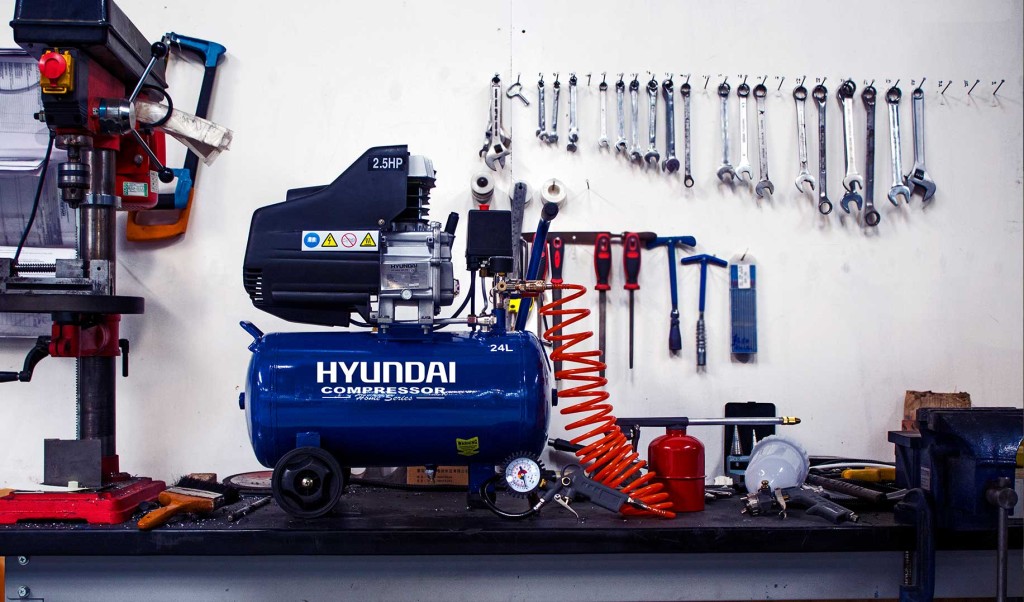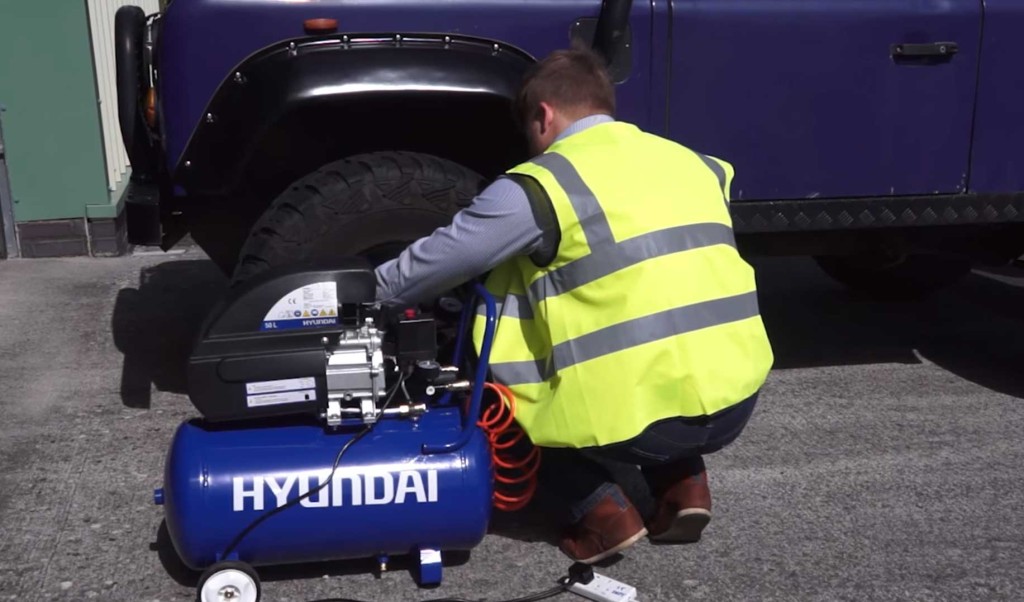Air Compressor Buying Guide

We know that looking for your first air compressor can be a daunting and confusing experience.
You need to choose between petrol and electric, DIY and commercial, know what air tools to buy and parse the complicated jargon. We regularly take questions from customers who aren’t sure quite what they’re looking for, so we hope this buying guide will make it easier for you to understand.
Domestic / DIY Air Compressors
Domestic and DIY air compressors are, understandably, a lot less powerful than professional air compressors.

They’re commonly used for tasks such as inflating tyres, nailing and stapling, drilling, spray painting and even blow cleaning.
Other than the power output, the main difference with a domestic/DIY air compressor is reflected by the size and price.
Since you will only be powering one tool at a time, and for a short duration, the tanks will have a much lower capacity.
This does make them much more portable, however, with most domestic air compressors benefiting from lower weights, wheels and carry handles.
These compressors are usually predominantly used inside and are powered by electric motors, which means you need to consider your nearest electrical supply if you’ll be using your air compressor in your garage or shed.
You should also consider voltage drop, which occurs when you use long extension cables. Since air compressors require a high current initially to start, you can encounter problems when a long extension cable will reduce its capacity to supply sufficient power.
Commercial Air Compressors
Larger and more expensive air compressors are required for professional users, due to the increased tank capacity and the ability to power multiple air tools simultaneously.
For the very best performance, commercial and industrial air compressors are equipped with petrol engines, which also makes the horsepower an important consideration.
Due to the increased size, commercial air compressors are more likely to be used as static machines. They can be installed in garages, workshops and warehouses, or mounted on to vehicles for portable repairs and inflation.
Depending on the tank size and motor, commercial air compressors are capable of powering service engineers, upholsterers, mechanics and more.
Use The Right Tools
An air compressor will only be as good as the air tool you’re using with it, so when you buy your air tools make sure you pick high quality ones.

You should always check that the specification of the tool matches the capabilities of your air compressor, otherwise you will be wasting your potential power away.
Conversely, you don’t want to buy air tools that require more power than your air compressor is capable of producing.
Understand The Jargon
Finally, before you buy an air compressor, make sure you understand exactly what it is capable of. Some of the jargon and terminology associated with air compressors can be confusing at first.
The most important things to understand are:
- Pressure: The pressure is the force of the compressed air and is measured in psi (pounds per square inch) or Bar.
- Free Air Delivery: This is what the air compressor will actually produce at the point where your air tool is connected, and how you should measure your power requirements.
- Displacement: This is the theoretical volume produced by the compressor at the pump. Because it is theoretical, it does not reflect the actual power of the air compressor.
If you don't understand these 3 terms then it's very easy to buy an air compressor which is inadequate for your requirements, so always keep them in mind.
Choose The Right Air Compressor For You
Now that you know what to look for in an air compressor, you can view our full selection here.
If you’re still not sure about anything, or would like more assistance, please don’t hesitate to contact us on 01437 700123.

